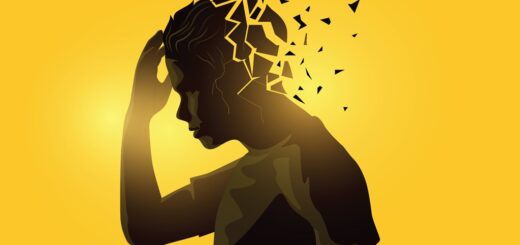Anxiety disorders: What are the main kinds of anxiety disorders?
We all feel anxiety and stress from time to time. There are situations that usually arouse feelings of anxiety, such as meeting tight deadlines, important social obligations or driving with a lot of traffic. This mild anxiety can help keep you alert and focused to deal with threatening or difficult situations.
But people who feel extreme fear and worries that last may be dealing with anxiety disorders. The frequency and intensity of this type of anxiety are often debilitating and interferes with daily activities. However, with proper and effective treatment, people who have anxiety disorders can lead normal lives.
What are the main kinds of anxiety disorders?
There are several main types of anxiety disorders. Each one has particular characteristics.
People with generalized anxiety disorders have recurring fears or concerns, such as health or economic status, and often have a constant feeling that something bad is about to happen. The cause of these intense feelings of anxiety can be difficult to identify. However, fears and concerns are very real and often prevent people from concentrating on their daily tasks. Panic disorder involves sudden, intense and unprovoked feelings of terror and dread. In general, people who have this disorder develop a lot of fear about when and how their next panic attack will occur, and consequently they often limit their activities. A related disorder includes phobias, or intense fears, regarding certain objects or situations. Specific phobias can include situations such as encountering certain animals or flying, while social phobias include fear of social environments or public places. Obsessive-compulsive disorder is characterized by persistent, uncontrollable and unwanted feelings or thoughts (obsessions) and routines or rituals performed by people to try to avoid or to get rid of these thoughts (compulsions). Examples of common compulsions include washing hands or cleaning the house excessively for fear of germs or checking something over and over again to detect errors. Some people who have severe physical or emotional trauma, such as those caused by a natural disaster or an accident or felony, may experience post-traumatic stress disorder. The thoughts, feelings, and behavior patterns are seriously affected by memories of these events, sometimes for months or even years after the traumatic experience.
Symptoms such as extreme fear, shortness of breath, tachycardia, insomnia, nausea, tremors, and dizziness are common in these anxiety disorders. Although they can occur at any time, anxiety disorders often arise in adolescence or at the beginning of adulthood. There is some evidence that anxiety disorders are hereditary. Apparently, genes, as well as the first learning experiences in families, make some people more prone than others to suffer from these disorders. Read more: Generalised Anxiety Disorder: How to Deal With It
Why is it important to seek treatment for these disorders?
If left untreated, anxiety disorders can have serious consequences. For example, some people who have recurrent panic attacks avoid at all costs putting themselves in situations they fear could trigger an attack. This evasive behavior can create problems if it conflicts with work requirements, family obligations or other basic activities of daily life. Keep reading 5 Simple Ways to Defeat Stress
Many people who have untreated anxiety disorders are prone to other psychological disorders, such as depression, and have a greater tendency to abuse alcohol and other drugs. Your relationships with family, friends, and co-workers can become very strained and your job performance may decline.
Are there effective treatments available for anxiety disorders?
Of course. Most cases of anxiety disorders can be successfully treated by appropriately trained health and mental health professionals. Several investigations have shown that both behavioral therapy and cognitive and behavioral therapy (CBT) can be very effective in treating anxiety disorders. Psychologists use CBT to help patients identify and learn to control the factors that contribute to their anxiety.
Behavior therapy involves using techniques to reduce or stop unwanted behaviors associated with these disorders. For example, one tactic involves treating patients with relaxation and deep breathing techniques to counteract the agitation and hyperventilation (rapid and shallow breathing) that accompany certain anxiety disorders.
Through cognitive therapy, patients learn to understand how their thoughts contribute to anxiety symptoms or disorders and how to modify those patterns to reduce the likelihood of occurrence and the intensity of the reaction. The patient’s increased cognitive awareness is often combined with behavioral techniques to help the person face and tolerate situations of fear gradually in a controlled and safe environment.
In conjunction with psychotherapy, proper and effective medication can play an important role in the treatment. In cases where medication is used, patient care can be handled by a therapist in collaboration with a doctor. It is important that patients realize that some drugs have side effects, which must be carefully controlled by the prescribing physician.
How can a qualified therapist help a person who has an anxiety disorder?
Psychologists authorized to practice are highly qualified to diagnose and treat anxiety disorders. The extensive training to which psychologists are subject includes the knowledge and use of a variety of psychotherapies, including CBT or cognitive and behavioral therapy.
Sometimes, psychologists use other methods besides individual psychotherapy. Group psychotherapy, typically with people who are not related but have an anxiety disorder, is an effective way to provide support. In addition, family psychotherapy can help family members understand the anxiety their loved one feels, and learn new ways of interacting that do not aggravate their anxiety or behaviors related to anxiety.
People suffering from anxiety disorders might also consider a mental health clinic or other specialized treatment programs dedicated to treating specific anxiety disorders such as panic or phobias available in their area of residence.
How long is the psychological treatment?
The vast majority of people with anxiety disorders can reduce or eliminate their symptoms and return to a normal life after several months of appropriate psychotherapy. Many people notice progress in eliminating symptoms and regaining their ability to function after a few treatment sessions. It is very important to understand that treatments for anxiety disorders do not take effect instantly. The patient should feel comfortable from the beginning with the proposed general treatment and with the therapist with whom he is working. Patient cooperation is essential, and there must be a strong feeling that the patient and the therapist are collaborating as a team to remedy the anxiety disorder.
No plan gives good results with all patients. The treatment must be adapted to the needs of the patient and the type of disorder, or disorders, that he has. The therapist and the patient must work together to assess whether the treatment plan is on track. Sometimes it is necessary to make adjustments to the plan since patients respond differently to treatment. There is no doubt that several types of anxiety disorders can severely affect the function a person performs at work and the family and social environment. However, the chances of a long-term recovery for most people seeking professional help are very good. People who have anxiety disorders can work with a qualified and experienced therapist.
- It may like also: http://calvitaminsuit.com/tips-for-depression/

















